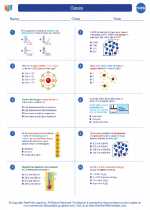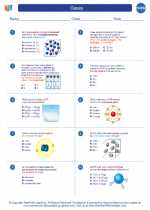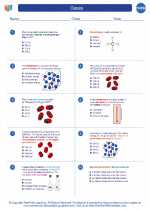Pharmaceuticals
Pharmaceuticals are a class of drugs used to diagnose, treat, cure, or prevent diseases. They can be classified into various categories based on their chemical composition, therapeutic use, and mode of action.
Types of Pharmaceuticals
- Over-the-Counter (OTC) Drugs: These are pharmaceuticals that can be purchased without a prescription. They are generally used for the treatment of minor ailments.
- Prescription Drugs: These pharmaceuticals require a prescription from a healthcare professional. They are often used for the treatment of serious or chronic conditions.
- Generic Drugs: These are pharmaceuticals that are bioequivalent to brand-name drugs. They are generally more affordable and are often used as alternatives to brand-name drugs.
- Biopharmaceuticals (Biologics): These are pharmaceuticals derived from biological sources such as living organisms, cells, tissues, or genetic material. They are used for the treatment of various diseases including cancer, autoimmune disorders, and genetic disorders.
Pharmaceutical Development Process
The development of pharmaceuticals involves several stages:
- Drug Discovery: Scientists identify and synthesize compounds that may have therapeutic potential.
- Preclinical Testing: The potential drug candidates undergo laboratory and animal testing to assess their safety and efficacy.
- Clinical Trials: The drug candidates that pass preclinical testing are tested on human subjects in multiple phases (I, II, III) to determine their safety and effectiveness.
- Regulatory Approval: If the drug successfully completes clinical trials and demonstrates safety and efficacy, it can be submitted for approval by regulatory agencies such as the FDA (Food and Drug Administration) in the United States.
- Post-Market Surveillance: Once a drug is approved, ongoing monitoring of its safety and effectiveness is conducted through post-market surveillance studies.
Chemistry of Pharmaceuticals
Chemistry plays a crucial role in the development and manufacturing of pharmaceuticals. Key aspects of pharmaceutical chemistry include:
- Drug Design: Chemists design and modify drug molecules to optimize their therapeutic effects and minimize potential side effects.
- Pharmacokinetics and Pharmacodynamics: Understanding the absorption, distribution, metabolism, and excretion of drugs within the body, as well as their mechanisms of action, is essential in pharmaceutical chemistry.
- Formulation and Drug Delivery: Chemists work to develop formulations and delivery systems that optimize the bioavailability and stability of pharmaceuticals.
- Analytical Chemistry: Quality control and analysis of pharmaceutical compounds and products are critical to ensuring their safety and efficacy.
Study Guide for Pharmaceuticals
To effectively study pharmaceuticals, it is important to focus on the following areas:
- Understand the different classes of pharmaceuticals and their therapeutic uses.
- Learn about the stages of pharmaceutical development, including drug discovery, preclinical testing, clinical trials, and regulatory approval.
- Explore the role of chemistry in pharmaceutical development, including drug design, pharmacokinetics, formulation, and analytical chemistry.
- Stay updated on current trends and advancements in the pharmaceutical industry.
- Review case studies of successful pharmaceutical development and the impact of pharmaceuticals on public health.
By mastering these concepts, you will gain a comprehensive understanding of pharmaceuticals and their significance in healthcare.
.◂Chemistry Worksheets and Study Guides High School. Gases
The resources above cover the following skills:
Physical Science
Energy - A. Energy is involved in all physical and chemical processes. It is conserved, and can be transformed from one form to another and into work. At the atomic and nuclear levels energy is not continuous but exists in discrete amounts. Energy and mass are related through Einstein's equation E=mc 2 . B. The properties of atomic nuclei are responsible for energy-related phenomena such as radioactivity, fission and fusion. C. Changes in entropy and energy that accompany chemical reactions influence reaction paths. Chemical reactions result in the release or absorption of energy. D. The theory of electromagnetism explains that electricity and magnetism are closely related. Electric charges are the source of electric fields. Moving charges generate magnetic fields. E. Waves are the propagation of a disturbance. They transport energy and momentum but do not transport matter.
Relate temperature to the average molecular kinetic energy.



